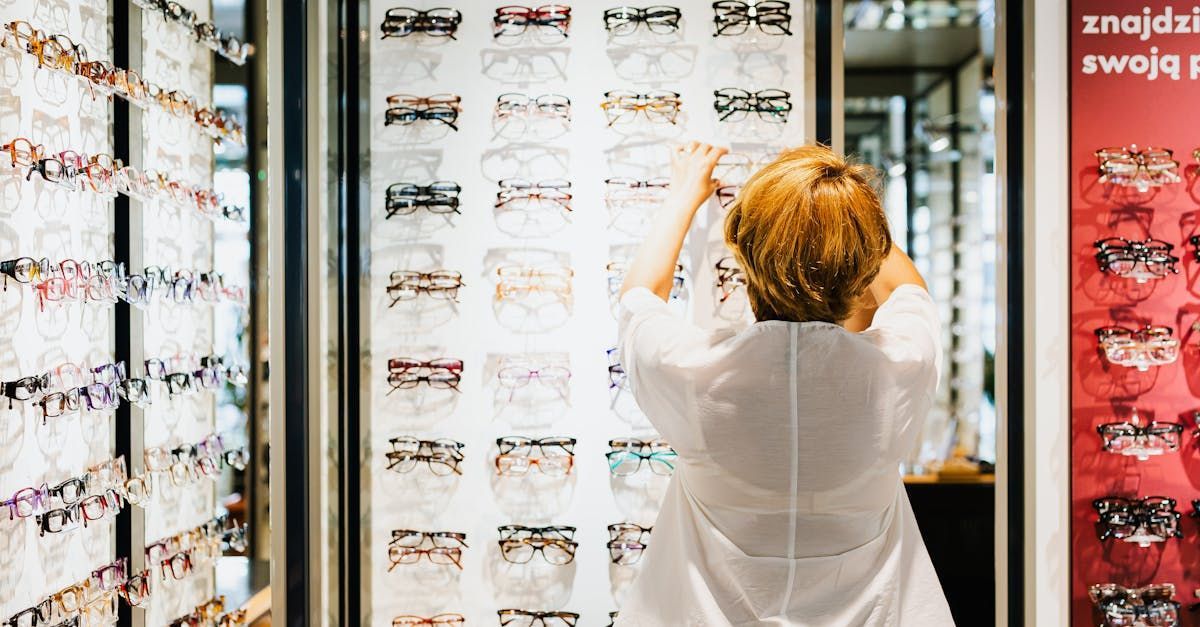Purchasing Prescription Eyewear: A Comprehensive Guide
Everything You Need To Know When Purchasing Prescription Glasses

When buying your next pair of prescription glasses, there are several features you should consider before ordering. While some of these features incur additional costs to the final price, they often provide incredible benefits by improving your sight and allowing you clearer, sharper vision. Furthermore, they tend to be lighter in weight, offering increased comfort while wearing your glasses all day. For those who take their glasses on and off throughout the day and who tend to lose their glasses frequently, a basic pair may suffice, but for people who wear glasses full-time, comfort is extremely important and the additional benefits are worth the added cost.
Some binoculars are $10 while others are $300, and while they are both classified as binoculars, they vary drastically in their optical quality. So ask yourself: How well do you want to see?
It is important to be well-informed while purchasing eyeglasses - they give you sight after all! There are so many ways to customize your glasses, so it is helpful to have every resource available to custom fit your prescription to your lifestyle. One of these resources available to you are the incredible opticians at Bay Eye Center, who have the expertise and knowledge to help you find the perfect pair of glasses that fit your lifestyle, your personality, and your budget.
At Bay Eye Center, we make it our mission to ensure each and every patient is satisfied with not only the care they receive during their eye exams, but the quality of eyewear they leave with. One of the ways we do this, is by providing accurate information on the eyewear you will see in our optical departments and which features you should be aware of when purchasing a pair of glasses. Let’s start with the various lens options you should consider when making an investment in your visual needs.
Lens Material.
Choosing the right lens material for your vision requirements is the first step in purchasing eyeglasses. The lens material provides the basic building block for your glasses. The most common lens materials are CR39, polycarbonate, and high index.
- CR93 is a basic plastic that has been a popular lens material since its introduction in 1947. It is the most affordable option for eyeglasses.
- Polycarbonate lenses are lighter and thinner than CR93. These lenses were initially introduced for use in safety glasses, but are extremely popular for regular eyeglasses today.
- High Index lenses are the thinnest and lightest lenses and offer the best cosmetic appearance for a higher lens power. These lenses are ideal for those with a high level of refractive error who do not want extremely heavy eye glasses.
Progressive Lenses.
What are progressive lenses? Progressive lenses are an alternative to bifocal and trifocal lenses. These lenses allow you to see at all distances, without the obvious indication of a visible line like traditional bifocals or trifocals. The progression between lens powers is seamless and invisible to anyone not wearing the lenses. Our lifestyle today requires us to see at all distances (reading glasses, distance glasses, computer glasses, etc.), and progressive lenses are the simplifying solution that you are looking for. Selecting the best progressive lenses will ensure that your glasses meet all your visual needs.
- Varilux lenses were the very first progressive lenses, invented in 1959. Varilux progressive lenses specialize in providing clear vision that does not leave you feeling off balance or unsettled when moving your vision between lens powers. These lenses have various lens powers in fixed, predetermined locations on the lens.
- Digital progressive lenses and digital freeform progressive lenses are even more advanced options for those who need multifocal lenses. While traditional progressive lenses have their various powers at set locations on the lens, digital progressive lenses allow you to customize where the powers lie on your lenses. This allows a deeper level of personalization if you find traditional progressive lenses do not fully meet your needs. The lenses are completely custom made to your eyes and offer the maximum amount of high definition, throughout the lens.
There are different lenses designed for specific tasks - your lifestyle will play a big part in finding the lenses that best fit your visual needs. Some lenses have wider channels for easier adaptations. Other lenses have a larger reading area for those who spend a lot of time focusing on close up tasks. Your Bay Eye Center opticians can help to determine what lens would be the best option for you, as there are many different brands of progressive lenses.
Lens Coatings.
There are multiple options when it comes to lens coatings that can be very beneficial for your lifestyle and specific vision needs.
Anti-Glare Lenses.
When selecting the multiple lens coatings available, anti-glare lenses should be on the top of your list. Why would you need anti-glare? Anti-glare lenses eliminate reflections in your glasses. Anti-glare and anti-reflective (AR) are two different terms for the same coating. This coating makes the glasses appear more transparent, and minimizes glare from light that can obstruct your vision. This is especially important for those with a high degree of refractive error. The higher the lens power of your glasses is, the more prone you will be to struggle with glare in the lenses. Anti-glare lenses give you 8% better vision because you do not have to fight through the glare. Anti-glare glasses allow others to see your eyes more clearly and allow you to see the world around you more clearly as well. The difference is particularly pronounced when looking at a screen for an extended period of time or while driving at night. Anti-glare lenses are a portable alternative to anti-glare screen protectors for cell phones and computers, and are proven to reduce eye strain and discomfort. AR lenses also allow for improved night vision by letting the maximum amount of light into the eye. This minimizes glare from other sources, like headlights while driving.
Anti-Reflective (AR) Coatings.
There are several different types of AR coatings that vary in quality.
- Generic AR coatings minimize glare at an affordable price tag. These coatings are often applied to large quantities of glasses in batches.
- High-end AR coatings, such as Crizal, allow the maximum amount of light through the lens. This provides the best resistance to glare and often comes with a diamond coat, which also prevents scratches and other damage to the lenses themselves. High-end AR coatings, like Crizal, are more expensive but they provide the highest quality anti-glare technology.
Computer Glasses.
Computer glasses are a great option for those who do not need to wear glasses all the time, but experience digital eye strain and irritation from prolonged exposure to a computer screen, cell phone, or television screen. These screens are all lit by blue light, which has been proven to cause eye fatigue and to disrupt normal sleeping patterns. Glasses for computer use are offered in prescription or over-the-counter powers, depending upon your need. They are even available with no power at all, to protect your eyes from harmful blue light even if you have perfect vision. Computer reading glasses are becoming more and more of a necessity as we spend an increasing amount of time in front of screens every single day. The best computer glasses will improve your vision in the intermediate zone, farther than reading but closer than driving - this is where the computer lies.
Computer glasses can also be incorporated into progressive lenses. Particularly in an office environment, it is common to spend a lot of time alternating focus between a computer screen and small text on paper. A progressive lens with computer distance towards the top of the lens, and a magnifying bottom portion for small text provides a solution to make office work less strenuous on the eyes.
Coating Options.
There are several different coatings that can be applied to your eyeglasses. These coatings include AR, as discussed above, UV, tints, and scratch protection coatings. Depending upon your lifestyle, these coatings can be great tools to make your glasses work better for you.
- UV coatings protect the eyes from the sun’s harmful rays. While you may associate UV protection with sunglasses, regular eye glasses can be coated with a UV protection agent as well. This is perfect for those who spend a lot of leisure time, or work, in the outdoors.
- Tints can be applied to lenses and will change the color of the lens. This is can be beneficial for improving vision in certain environments. For example, those who often work outside may prefer a pair of tinted eyeglasses to wear while working. There are lots of tint colors to choose from.
- Scratch-resistant coating is available to prolong the life of your eyeglasses. For anyone who is prone to dropping their glasses, scratch resistant coating is the best investment to be made to extend the life and quality of your eyeglasses.
Photochromatic Lenses.
Photochromatic lenses, often referred to as “transition” lenses, change their tint based on the amount of UV that they are exposed to. These lenses protect the eyes from UV damage. UV rays also cause the lenses to darken for increased comfort. Photochromatic lenses are available in all lens materials and are good options for those who do not want their glasses to be clear while indoors, but prefer a darker lens when exposed to UV rays.
No matter what type of glasses you need, our licensed opticians are happy to help you on your path to finding the perfect pair by sharing their knowledge. While you know your lifestyle best, licensed opticians know glasses best. For some, one pair of glasses can do it all. For others, the best optical option is multiple pairs of glasses. Talk to one of our licensed opticians today to determine which qualities are the most important for your glasses.


